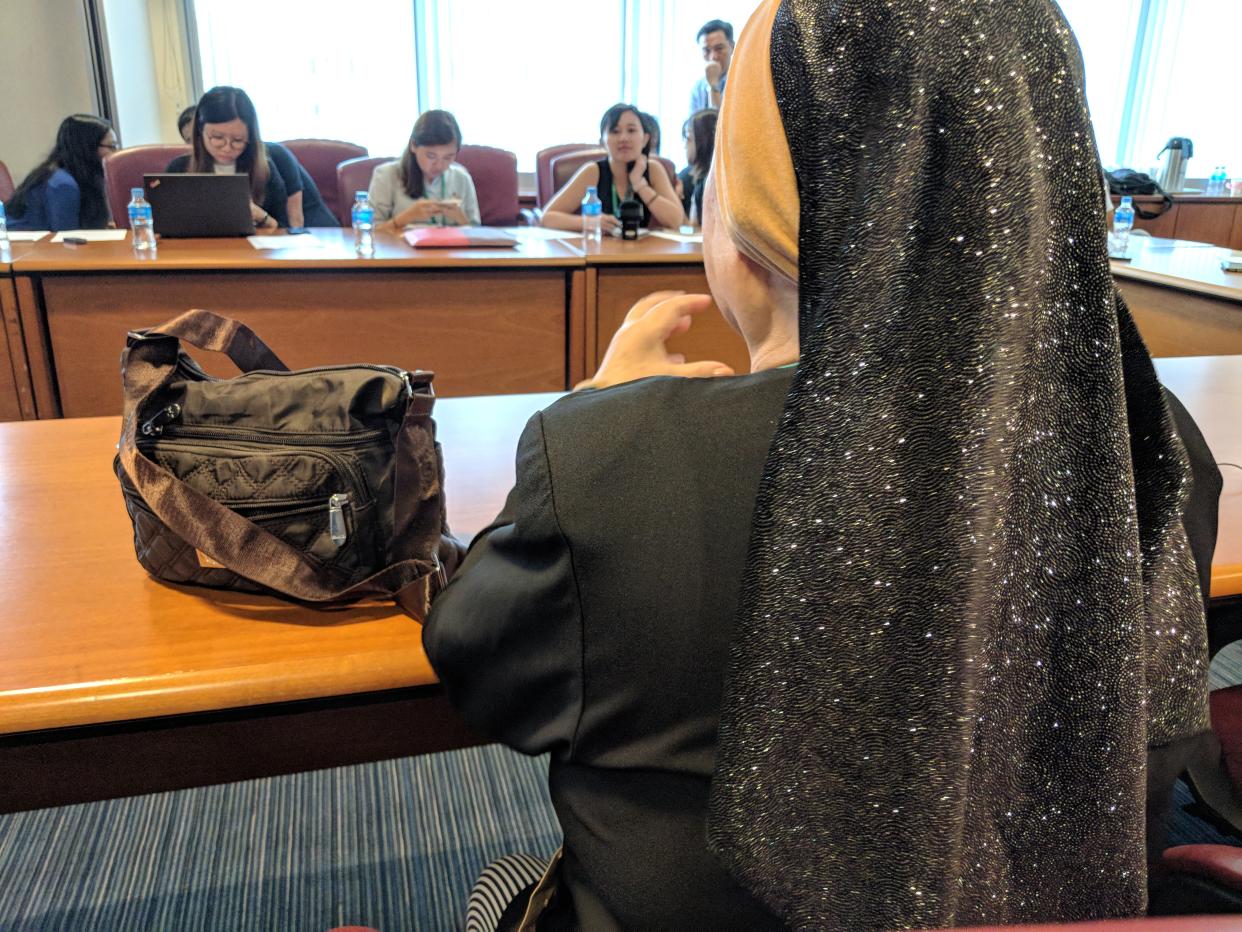I was swayed by his 'sweet nothings': Internet love scam victim turned money mule

In 2017, freelance entertainer “Rosie” – not her real name – was befriended on Facebook by a “good-looking” man in his 30s who sang praises of her performances in video clips she uploaded online.
Swayed by his “polite demeanour and sweet nothings”, the 70-year-old – who is married and has a 40-year-old son – began chatting secretly with him over the phone three to four times a week.
The man, whose Facebook profile photo resembled that of a “popular Indonesian actor”, had stated on his page that he was based in Malaysia and claimed to be a policeman.
“Day after day, I became more happy with him,” she said. “He asked if I could introduce him to acting gigs in advertisements and dramas. He said he will come to see me one day in Singapore. I waited and waited.”
A few months into their friendship, the man asked Rosie for a “one-time favour”: to transfer $10,000 to him to cover the supposed medical expenses for his friend’s child.
To further convince her, he sent a photo of a “sickly child in the hospital full of IV needles” with the following message: “The child’s life is in your hands.”
Unable to ignore his plea, she began transferring $2,000 per day to an overseas account in Malaysia. Short of $500, she also pawned her jewellery.
When she ran out of money, the man asked her to accept a bank transfer of $20,000 from another woman in Singapore and to remit it to an overseas account.
After remitting $11,000, Rosie was arrested when the victim called the police and the money transfer was traced to her bank account.
While she avoided prosecution over her actions, she was issued a police advisory. She has yet to get her money back.
Combating Internet love scams
Rosie is one of over 200 “money mules” who were involved in Internet love scams investigated by the police’s Transnational Commercial Crime Task Force (TCTF) between last October and February this year. The TCTF, which was started in October, also seized at least $1 million and closed around 300 bank accounts.
Most money mules, such as Rosie, are unwittingly “coached” into allowing scammers to use their bank accounts to move funds, even after parting with their own money, said the Commercial Affairs Department’s head of syndicated fraud Chew Jingwei during a press briefing on Monday (26 March).
“The majority of them are female,” he added. “They are the ones who were in a relationship with the scammers, and subsequently are cultivated into money mules.”
Others are recruited via job advertisements as “commission agents”. Some knowingly go into the business of money laundering.
“Our strategy is to stop the flow of funds, as quickly as possible, to the syndicates. Once they are starved of the monies coming to them, they will see Singapore as a less attractive target,” said Chew.

Between end-December last year and early January, the TCTF also conducted a joint operation with the Royal Malaysia Police, leading to the arrest of 11 suspects believed to have been involved in 10 cases of Internet love scams in Singapore and Malaysia.
The combined effort has led to a steady decline in reports of such scams, added Chew. For instance, the police received 41 reports of such scams last month, a drop from the 102 cases seen in September.
Last year, reported cases of Internet love scams hit a historical high of 825, up almost 30 per cent from 2016. The majority of these scams are conducted through Facebook, as well as social media platforms such as Instagram, Tinder and OkCupid.
The amount scammed also increased by 54.2 per cent from $24 million in 2016 to $37 million in 2017. The highest amount cheated in a single case last year was a historical high of nearly $6 million.
Come 1 April, the team will be doubled from six to 12 investigators. Apart from Internet love scams, the team will investigate impersonation and other online scams.
Related stories:
Internet love scams on the rise, though overall crime rate falls 1% in 2017
Shrewd staff from 17 organisations recognised for scam-prevention efforts


